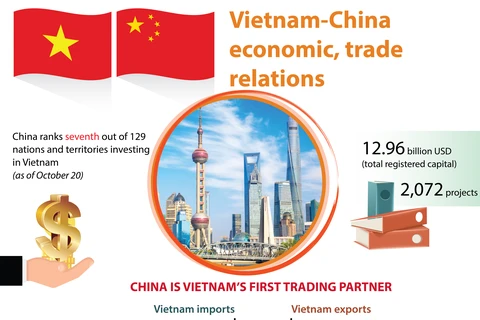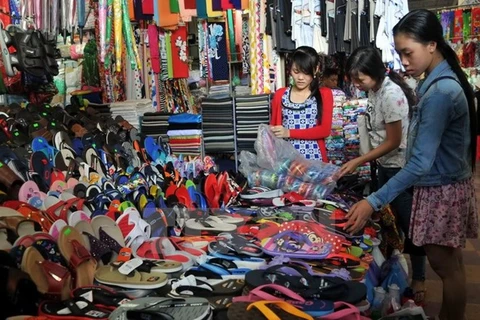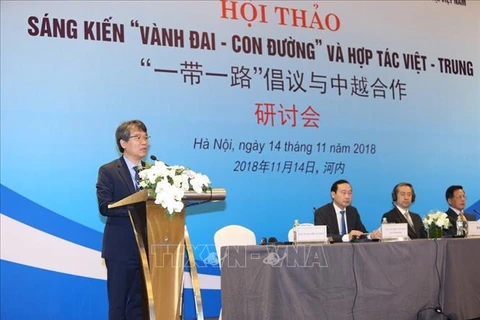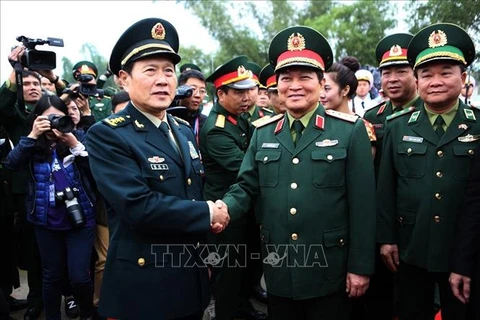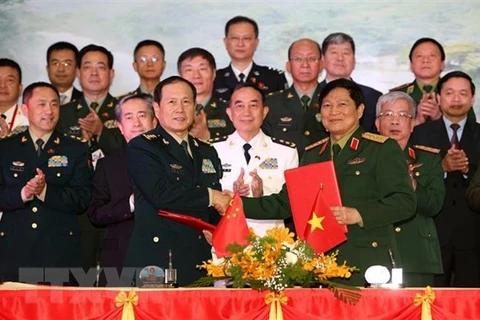 Vietnamese Minister of Finance Dinh Tien Dung (L) and his Chinese counterpart Liu Kun (Photo: mof.gov.vn)
Vietnamese Minister of Finance Dinh Tien Dung (L) and his Chinese counterpart Liu Kun (Photo: mof.gov.vn) Beijing (VNA) – Vietnamese Minister of Finance Dinh Tien Dung held talks with his Chinese counterpart Liu Kun in Beijing on November 27 as part of his working visit to China from November 25-30.
At the talks, Dung briefed the hosts about Vietnam’s macro-economy and economic prospects. Despite a wide range of difficulties and challenges, Vietnam managed to post an economic growth rate of 6.98 percent in the first nine months of 2018, the highest level in the nine month period since 2011, he said.
The country has successfully kept inflation under control, while boosting import-export, making it an important driving force for its economic growth, Dung said.
Vietnam’s finance and securities markets have developed strongly, while its insurance market has maintained positive growth and monetary market has seen good liquidity, the minister said.
Meanwhile, the nation’s business environment has seen improvements, he said, noting that Vietnam climbed 14 places to 68th amongst 190 economies in the World Bank’s Ease of Doing Business 2017 rankings and jumped five positions to 74th amongst 135 economies in the Global Competitiveness Index 2017.
According to the minister, international organizations had forecast that Vietnam’s economy will record positive growth in 2018.
For his part, Liu noted with pleasure that China-Vietnam cooperative ties have been lifted a new height following mutual visits by senior leaders of the two nations.
He told the Vietnamese guests that China’s economy is switching to high-quality growth and the country is striving to accomplish the goal of comprehensive poverty eradication by 2020.
Both ministers expressed their delight at achievements in Vietnam-China relations after 68 years since the establishment of diplomatic ties.
The two sides agreed to step up cooperation and mutual support within bilateral, regional and multilateral cooperation frameworks, and at the same time, strengthen coordination in the fields of financial cooperation, human resource development, macro-economic supervision, and mid-term budget plan making.
During their visit, the Vietnamese delegation also had working sessions with the General Administration of Customs, the China Securities Regulatory Commission (CSRC) and the State-owned Assets Supervision and Administration Commission (SASAC).
At these working sessions, the two sides agreed to increase the exchange of information and experience in restructuring state-owned enterprises (SOEs) and promoting the Party’s leadership in SOEs.
They also consented to enhance cooperation in the fight against smuggling, trade fraud, and drug trafficking as well as in supervising the enforcement of intellectual property rights in border areas.
The Vietnamese delegation also visited and talked with the staff of the Vietnamese Embassy in China.-VNA
VNA
